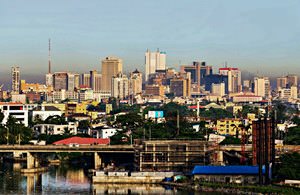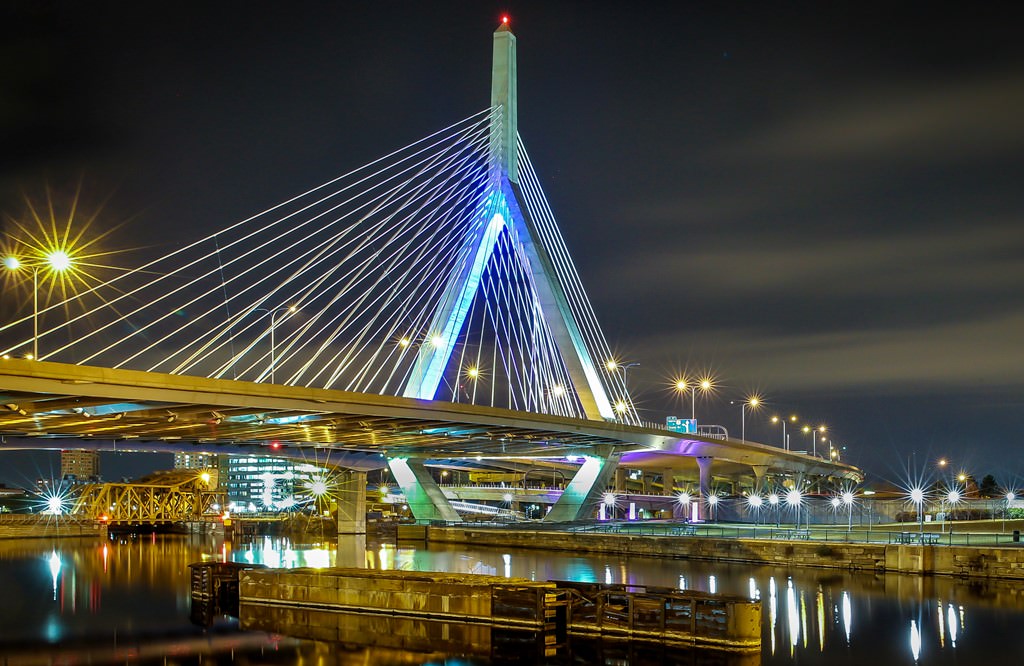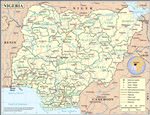Nigeria sightseeing. Travel guide - attractions, sights, nature and touristic places
 One of the largest African countries, Nigeria attracts travelers with its wild savannahs, tropical forests, and rich animal world. Modern Nigeria has both vibrant and actively developing cities and remote areas inhabited by aboriginal tribes. The African country is one of the most multinational in the world – more than 200 different nationalities live in the territory of Nigeria, and all of them speak their different dialects. It is hard to imagine, how multidimensional and diverse the culture of this country is.
One of the largest African countries, Nigeria attracts travelers with its wild savannahs, tropical forests, and rich animal world. Modern Nigeria has both vibrant and actively developing cities and remote areas inhabited by aboriginal tribes. The African country is one of the most multinational in the world – more than 200 different nationalities live in the territory of Nigeria, and all of them speak their different dialects. It is hard to imagine, how multidimensional and diverse the culture of this country is.
First signs of human activity in the territory of modern Nigeria date back to the 7th – 8th centuries BC. Scientists think that this is exactly where the ancient Nok civilization of an early Iron Age appeared 3,000 years ago. This marvelous civilization mysteriously disappeared, leaving only multiple terracotta statues. Later, the nomadic Yoruba people inhabited this region and formed several early states.
The capital of the country, Abuja, is one of the most modern cities in Nigeria. Abuja was founded in 1828. In modern days, this is the location of the country’s most important authorities and the residence of the president. It is very interesting to explore beautiful modern streets, to admire gorgeous buildings, and visit several interesting museums dedicated to the culture and traditions of the country.
 The port city of Lagos is the former capital of the country. This is a wonderful place that attracts tourists with its vibrant atmosphere and numerous landmarks. The city’s period of prosperity fell on the colonial epoch. Nowadays, beautiful churches remind of that time. By the way, local churches serve beautiful masses every Sunday. In Lagos, it is also interesting to visit the National Museum, as well as markets and artisan workshops.
The port city of Lagos is the former capital of the country. This is a wonderful place that attracts tourists with its vibrant atmosphere and numerous landmarks. The city’s period of prosperity fell on the colonial epoch. Nowadays, beautiful churches remind of that time. By the way, local churches serve beautiful masses every Sunday. In Lagos, it is also interesting to visit the National Museum, as well as markets and artisan workshops.
Kano is one of the oldest cities in the country. It has a well-preserved historic district with gorgeous palaces and ancient protective buildings. Old Kofar Mata Gate is a symbolic entrance to the Old Town. The Emir’s Palace is, without a doubt, one of the most beautiful architectural landmarks in Kano. Having explored the signature attractions of this city, don’t forget to visit Kurmi Market and shop for interesting handmade souvenirs.
 Nigeria is rich in all kinds of natural attractions. The Yankari National Park is located in the north-east of the country. This is a wonderful place to watch wild animals in their natural habitat. Tourists can also visit local hot springs and explore endless savannahs in an all-terrain vehicle. There hasn’t been a settlement in the territory of the natural reserve for more than a thousand years, and this fact has helped to retain the unique nature of this area.
Nigeria is rich in all kinds of natural attractions. The Yankari National Park is located in the north-east of the country. This is a wonderful place to watch wild animals in their natural habitat. Tourists can also visit local hot springs and explore endless savannahs in an all-terrain vehicle. There hasn’t been a settlement in the territory of the natural reserve for more than a thousand years, and this fact has helped to retain the unique nature of this area.
The Jos Plateau is another wonderful landmark that is very interesting to explore. The plateau became famous because of the unusual rocky formations. As impenetrable green jungles occupy almost a complete territory of the plateau, rocks surrounded by green flora look particularly spectacular. At a glance, it feels like the rocks are manmade because their flat tops look alike. However, the rocks got a similar shape because of the wind.
 There is a large international airport in Lagos that welcomes flights from different European and African cities every day. British Airways has flights from London to Lagos, and aircraft by Lufthansa connect the city with Frankfurt. There are also regular flights to Lagos from Madrid, Amsterdam, Paris, Rome, and Istanbul. In recent years, the number of flights from Dubai and Doha has also risen significantly. Nigeria has railway connection with Chad and Cameroon, but these trains are not regular and can be delayed.
There is a large international airport in Lagos that welcomes flights from different European and African cities every day. British Airways has flights from London to Lagos, and aircraft by Lufthansa connect the city with Frankfurt. There are also regular flights to Lagos from Madrid, Amsterdam, Paris, Rome, and Istanbul. In recent years, the number of flights from Dubai and Doha has also risen significantly. Nigeria has railway connection with Chad and Cameroon, but these trains are not regular and can be delayed.
This article about iconic landmarks and sights of Nigeria is protected by the copyright law. You can re-use the content, but only under the condition of placement of an active link to www.orangesmile.com.
Famous and uniques places in Nigeria from our review series
Slums of Makoko
From the series “The Most Extreme Settlements on the Planet” The most extreme settlement in Nigeria is the Makoko slum. Many parts of it are known under the unofficial name, the Black Venice. Makoko is one of the areas of Lagos, it borders with the most advanced and modern districts of the city with banks and office centers. Black Venice consists of few streets built just over the water. People here live in wooden huts. Just an appearance of these structures could plunge into horror. It seems that dilapidated wooden houses may collapse into the water at any time.
The most extreme settlement in Nigeria is the Makoko slum. Many parts of it are known under the unofficial name, the Black Venice. Makoko is one of the areas of Lagos, it borders with the most advanced and modern districts of the city with banks and office centers. Black Venice consists of few streets built just over the water. People here live in wooden huts. Just an appearance of these structures could plunge into horror. It seems that dilapidated wooden houses may collapse into the water at any time. Once upon a time, this place was a thriving fishing village supplying the seafood to the whole city. Over time, the water off the coast became heavily polluted. Today, water with a sharp odor is not suitable for fishing. According to statistics, an average of 6 to 10 people live in each … Read all
Expo 2020 in Dubai Was Visited by More Than 7 Million Visitors
If you haven’t visited this event yet, there is still time to book a hotel in Dubai because Expo 2020 Dubai runs until 31 March 2022. People who are unable to visit the emirate can make a virtual tour on the Expo 2020 website. By the way, the virtual visitation has already reached 31.6 million by the end of December. Read this
Read this
27.07.2024
If you haven’t visited this event yet, there is still time to book a hotel in Dubai because Expo 2020 Dubai runs until 31 March 2022. People who are unable to visit the emirate can make a virtual tour on the Expo 2020 website. By the way, the virtual visitation has already reached 31.6 million by the end of December.
27.07.2024
Sightseeing in popular cities of Nigeria
Originally, the Yoruba people inhabited the territory of modern Lagos. They called their village Eko which meant “farm” in their language. Some sources say that Eko could also mean “camp”. In 1472, Portuguese naval explorer Rui de Sequeira reached this land. When he saw the beautiful area, “lakes” or Lagos was the first word that came to his mind. This is how the region got its name. Starting from 1704, Lagos turned into a center of the slave trade. Everything changed only at … Read more 
Abuja is mostly a political and administrative center of the country rather than its cultural heart. As politicians say, Abuja is the birthplace of laws and regulations. There are not many industrial objects in the city, and this fact has a favorable impact on the environment of the region. Abuja is one of the fastest-growing cities in the world, and it was the world’s fastest-growing city in the period from 2000 and 2010. The population of the city exceeded 1 million in 2011. It is easy … Read more 






















